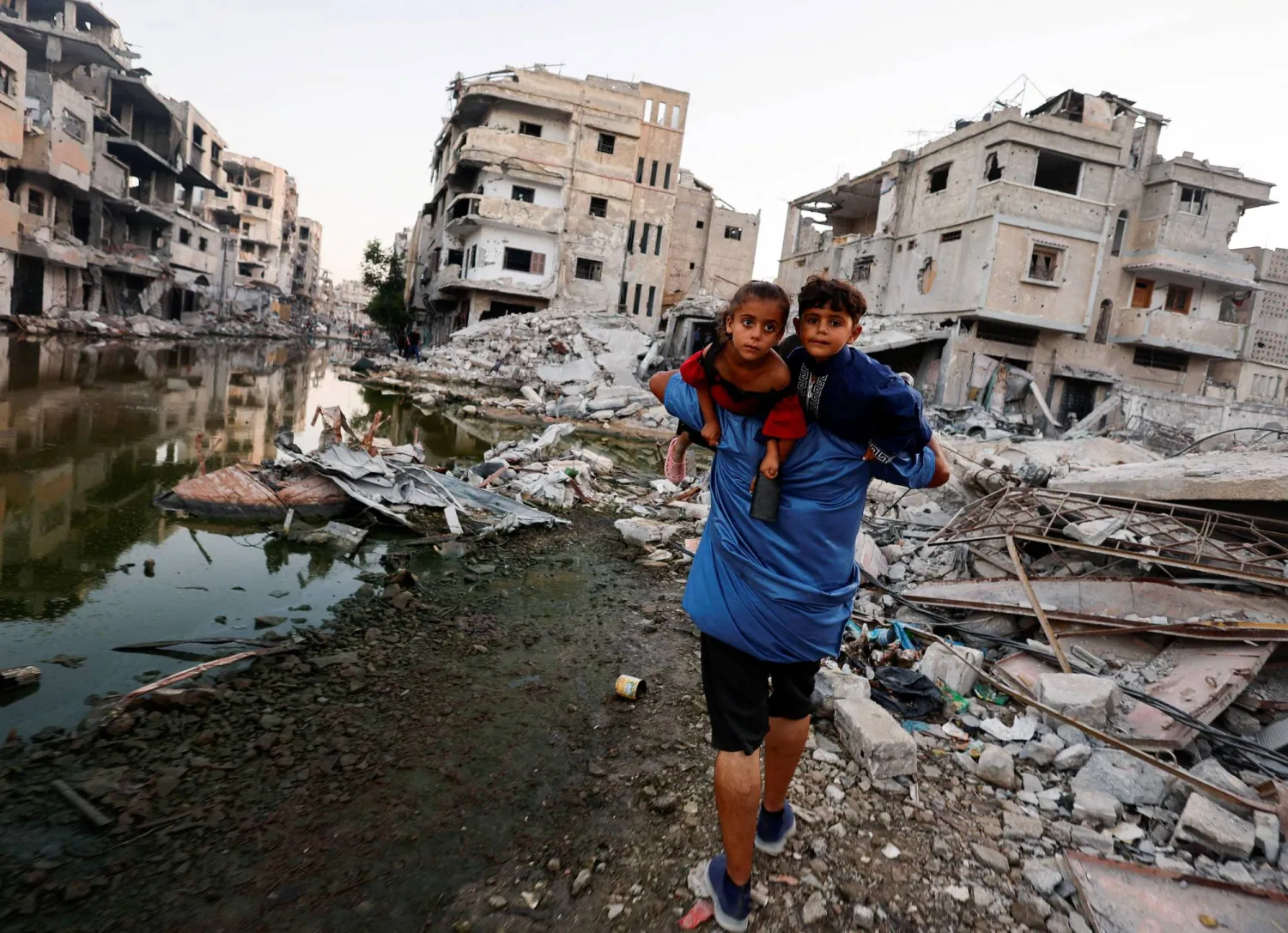A Palestinian health official says Israel released 55 Palestinians on Monday whom it had detained from Gaza, including the director of the territory’s main hospital, The Associated Press said.
Mohammed Abu Selmia was detained in November when Israeli forces raided Shifa Hospital.
In video comments aired by Palestinian media following his release, Abu Selmia accused Israeli authorities of subjecting Palestinian detainees to "daily physical and psychological humiliation.” Israeli authorities have denied such allegations.
Israel accuses Hamas and other militant groups of sheltering in hospitals and using them for military purposes. Palestinian health officials say Israeli raids have forced several hospitals to shut down or dramatically reduce services, recklessly endangering civilians. Hospitals can lose their protection under international law if they are used for military purposes.
The Israeli military says around 20 projectiles were fired from Gaza at communities near the border early Monday. There were no immediate reports of casualties or damage.
Israel launched the war after Hamas’ Oct. 7 attack, in which militants stormed into southern Israel, killed some 1,200 people — mostly civilians — and abducted about 250.
Since then, Israeli ground offensives and bombardments have killed more than 37,700 people in Gaza, according to the territory's Health Ministry, which does not distinguish between combatants and civilians in its count.
The war has largely cut off the flow of food, medicine and basic goods to Gaza, and people there are now totally dependent on aid.
The top United Nations court has concluded there is a “plausible risk of genocide” in Gaza — a charge Israel strongly denies.
Israel Releases 55 Palestinians it Had Detained from Gaza, Including Hospital Director

A Palestinian man holds his children as he walks next to buildings destroyed in an Israeli strike, amid the ongoing conflict between Israel and Hamas, in Khan Younis, in the southern Gaza Strip, June 30, 2024. REUTERS/Mohammed Salem

Israel Releases 55 Palestinians it Had Detained from Gaza, Including Hospital Director

A Palestinian man holds his children as he walks next to buildings destroyed in an Israeli strike, amid the ongoing conflict between Israel and Hamas, in Khan Younis, in the southern Gaza Strip, June 30, 2024. REUTERS/Mohammed Salem
لم تشترك بعد
انشئ حساباً خاصاً بك لتحصل على أخبار مخصصة لك ولتتمتع بخاصية حفظ المقالات وتتلقى نشراتنا البريدية المتنوعة







